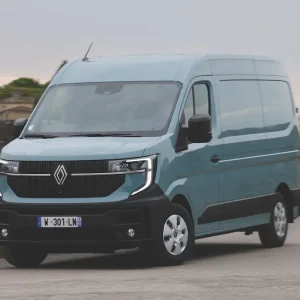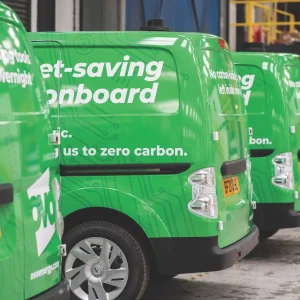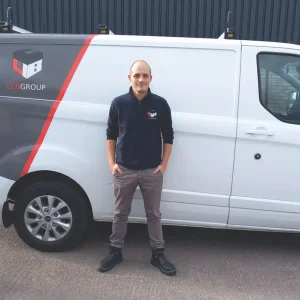Light commercials have experienced a small but significant revolution in recent years with the introduction of big-capacity 3.5t Lutons with low loading heights.
Often, though not always, based on front-wheel drive chassis platforms rather than chassis cabs, they have made life far easier for businesses that need a lot of cargo space and have to transport items that may be awkward to load. If such vehicles were not available then the only alternative might be for firms to venture above the 3.5t barrier – and run straight into a mass of tough regulations they would really rather avoid.
Loughborough, Leicestershire-based Maxi-Low has been in the vanguard of this quiet revolution – and that is why What Van? is more than happy to award it our Converter of the Year accolade.
With cavernous cargo areas – check out the Maxi-Low Jumbo at an echoing 26m3 – its lightweight yet durable Lutons can deliver fuel savings of up to 20% when compared with a traditional Luton, says the firm. They can handle up to 30% more payload too, it adds – getting on for 1.5t – while maintenance costs are down by up to 20%.
Residual values look like good news too, at up to 48% of the original acquisition price after three years.
The bodies are designed to be easy to repair and all sorts of options can be specified: side doors, hatches, etc. Slip-resistant flooring is standard and the Lutons can be jet-washed inside and out.
A wide variety of paint finishes are on offer, including metallics.
Warranty? Usually up to three years/100,000 miles, the aim being to mirror the manufacturer’s warranty on the chassis the body is built on. At present, Maxi-Low’s Lutons can be based on Renault’s Master, Vauxhall’s Movano, Peugeot’s Boxer, Mercedes-Benz’s Sprinter and Iveco’s Daily.
While the aforementioned Jumbo is impressive, firms that want weight-carrying capability as well as space might want to check out the Qubit. With a 15m3 cargo box it can haul up to 1,450kg, with an interior length from the bulkhead of 3,800mm, an internal width of 2,010mm, and an interior height of up to 1,908mm depending on the type of rear door specified.
Buyers can pick from a standard roller shutter, a reinforced shutter, or barn-type doors. Available too is a tail lift with a platform that can be deployed as the rear closure.
If you want a bit more room, and are happy to carry slightly fewer kilos, then opt for the Qube, with an up to 1,425kg payload capability and a 16.5m3 load bay. For Maxi-Low’s Classic Luton the figures are 1,400kg and 20m3 respectively, while Slimbo offers you 1,360kg and 24m3.
The 26m3 Jumbo referred to earlier can shoulder up to 1,290kg.
While most of the bodies Maxi-Low builds are for ambient applications, over the past three or four years it has turned its attention to the refrigerated market. It has a Sprinter Low Floor chiller available with a payload capability of up to 1,400kg – a vehicle bound to appeal to local delivery fleets.
Highly Commended: CoolKit
CoolKit has been working diligently to improve the payloads of refrigerated panel vans and to make them more durable. Its efforts have not gone unnoticed, which is why we have accorded it our Highly Commended distinction.
The temperature-controlled light commercial vehicles it produces can transport upwards of 1,300kg, and the company has worked hard to end the unnecessary use of wood in its products. With traditional conversions, if the load area’s floor incurred damage and the top layer came off, then the wood underneath would be exposed, says CoolKit. As soon as it got wet, it would delaminate. Switching to a polypropylene honeycomb ensures this does not happen, extending the conversion’s life as a consequence.
CoolKit has ISO:9001 accreditation, and has recently started putting some of its vehicles into climatic chambers to test how well they perform. The company recently did this for Alliance Healthcare, which supplies medicines and other healthcare products to pharmacies, hospitals and health centres – a vital service in the current coronavirus health crisis.





